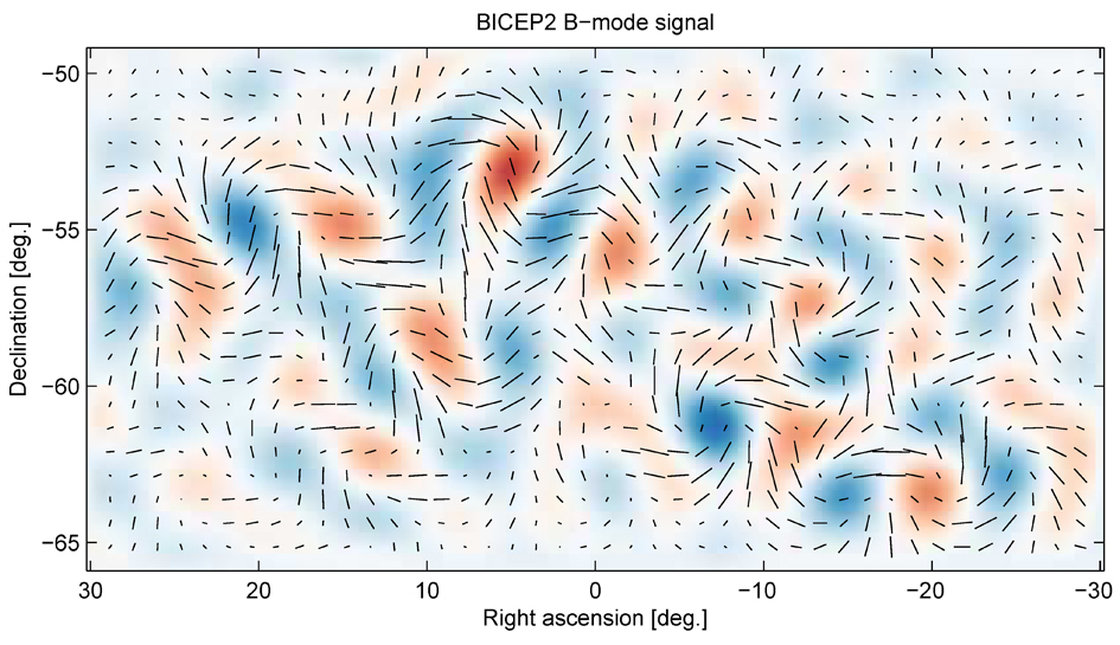Raise your hand if you thought the big bang looked like this:

Researchers today announced they’ve discovered the gravitational waves that traveled through space/time shortly after the Big Bang. It’s the first direct evidence of the rapid expansion at the beginning of the universe.
That the waves existed — somewhere, sometime — was predicted by Einstein’s theory of relativity, but never proven until now.
Computer models indicate that the universe expanded by 100 trillion trillion times in .0000000000000000000000000000000001 (10 to the minus-34) seconds after the Big Bang explosion 13.8 billion years ago, Discover.com says.
“The experiment is incredibly impressive,” Lawrence Krauss, a cosmologist at Arizona State University in Phoenix, tells Businessweek. “A signal from the very early universe, from the beginning of time.”
According to Space.com, the proof of rapid expansion carries with it confirmation that the universe is speeding up, moving away from us, and depriving us of the opportunity to discover it and communicate with the rest of it.
Because the universe seems to be expanding at an increasing rate, eventually, observers will not be able to see any other galaxies from Earth or any other spot in the Milky Way. Galaxies are moving away from one another, and the galaxies that are farther away look like they are moving more quickly than ones that are closer.
“We will see distant galaxies moving away from us, but their speed is increasing with time,” Loeb said. “So, if you wait long enough, eventually, a distant galaxy will reach the speed of light. What that means is that even light won’t be able to bridge the gap that’s being opened between that galaxy and us. There’s no way for extraterrestrials on that galaxy to communicate with us, to send any signals that will reach us, once their galaxy is moving faster than light relative to us.”
At some point in the distant future, every galaxy will be farther than what observers can see from Earth. Each galaxy will pass the visible horizon, making it impossible for scientists to observe them.
We’ll be all alone in our own little galaxy.
What’d you do at work today?
